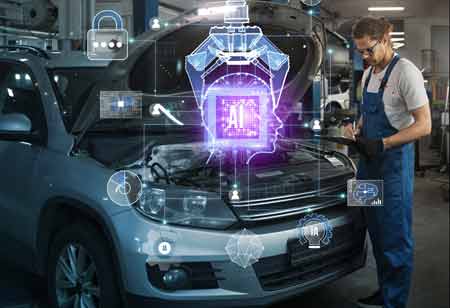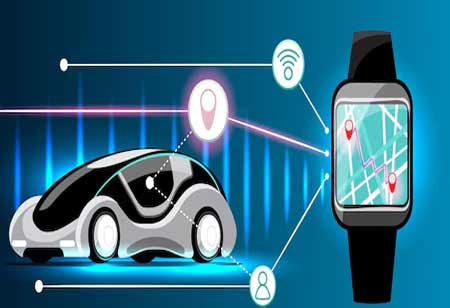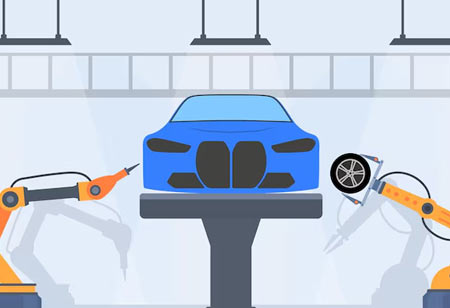THANK YOU FOR SUBSCRIBING
THANK YOU FOR SUBSCRIBING
Be first to read the latest tech news, Industry Leader's Insights, and CIO interviews of medium and large enterprises exclusively from Auto Tech Outlook

By
Auto Tech Outlook | Monday, August 18, 2025
Stay ahead of the industry with exclusive feature stories on the top companies, expert insights and the latest news delivered straight to your inbox. Subscribe today.
FREMONT, CA: Artificial intelligence (AI) revolutionizes design, production, safety, and user experience. The advancement of AI technology is enhancing current automotive processes and paving the way for future self-driving cars and smart transportation networks.
AI's most significant impact in the automotive sector is autonomous driving. AI algorithms power self-driving vehicles' perception, decision-making, and navigation capabilities. By integrating sensors, cameras, and LiDAR systems, AI enables vehicles to interpret their surroundings, detect obstacles, and make real-time driving decisions. This technology could lower accident rates, enhance traffic efficiency, and offer mobility options to people with impairments or restricted mobility.
AI is transforming advanced driver-assistance systems (ADAS) and transforming automotive safety. These systems employ artificial intelligence (AI) to track driver behavior, identify possible risks, and send out alerts or take action to stop crashes. Features like adaptive cruise control, lane-keeping assistance, and automated emergency braking increase driver safety and comfort as we get closer to fully autonomous driving.
AI transforms vehicle user experience through natural language processing (NLP) and personalized interfaces. Integrated with infotainment systems, voice-activated AI assistants enable drivers to control navigation, entertainment, and communication functions hands-free. AI-driven predictive analytics anticipate driver preferences and behavior patterns, customizing in-vehicle experiences for enhanced comfort, convenience, and safety.
AI stimulates innovation in the automotive industry's supply chain and logistics and applications focused on vehicles. AI-powered predictive maintenance systems monitor vehicle performance and schedule maintenance proactively, optimizing fleet management and reducing operational costs. AI algorithms also analyze supply chain data to forecast demand, manage inventory efficiently, and streamline logistics operations, ensuring timely delivery of parts and components.
The widespread adoption of AI in the automotive industry poses data privacy, cybersecurity, and regulatory compliance challenges. Manufacturers must prioritize robust cybersecurity measures and data protection protocols to safeguard vehicle data from potential cyber threats and unauthorized access. Moreover, ethical considerations surrounding AI-driven decision-making and liability in autonomous vehicles require careful deliberation and regulatory frameworks to ensure public trust and safety.
The future of AI in the automotive industry holds immense potential for innovation and growth. As AI technologies continue to evolve, manufacturers, technology providers, and regulatory bodies must collaborate to address challenges and harness AI's full capabilities in shaping the future of mobility. By embracing AI-driven advancements responsibly and ethically, the automotive industry can accelerate the development of safer, more efficient, and sustainable transportation solutions for a connected world.
 Copyright © 2025 AutoTech Outlook. All Rights Reserved | Privacy Policy | Subscribe | Sitemap | About us | Feedback Policy | Editorial Policy
Copyright © 2025 AutoTech Outlook. All Rights Reserved | Privacy Policy | Subscribe | Sitemap | About us | Feedback Policy | Editorial Policy 



